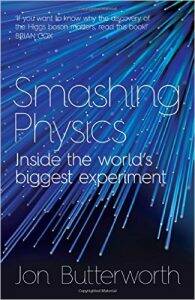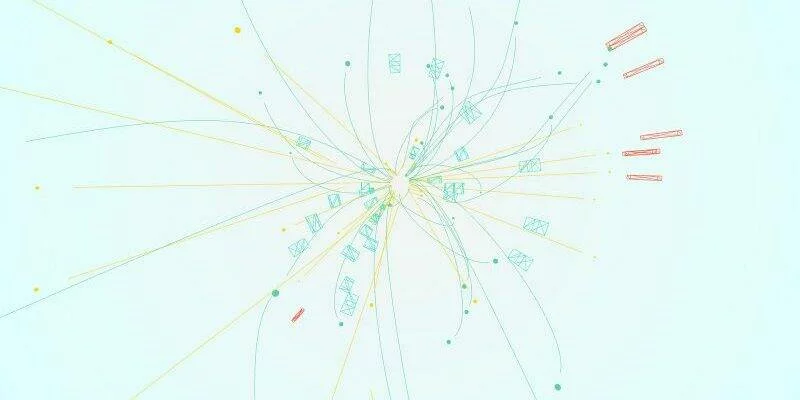Big Money, Big Science, and God’s Big World
In my last post I presented the objections to spending billions on big science projects such as the Large Hadron Collider. Questions certainly arise in the face of this massive public spending, when we live in a world in which millions of people are hungry and lack access to such basic goods as clean water. Even if the LHC led to positive technology such as PET scanners and treatments for cancer, can Christians support such spending on scientific research? Is the Higgs boson really worth it?
I suggested that the answer is yes, it is; and that this is not simply a matter of utility. There are more fundamental theological issues here.
Basically, we want to assert that knowledge is a good thing. Part of our role in the created order is dominion, and understanding the world we are to have dominion over is part of its responsible exercise. I’m glad that there are people in the world driven by the curiosity simply to know the truth. I hope that search for truth extends equally to wanting to know truth about God instead of suppressing it, but I still want to assert that truth is good on any level. I’m glad that physicist and group leader Jon Butterworth can say about his research with the Large Hadron Collider that “fun and excitement are the two impressions that dominate my memory of the first high-energy run of the biggest scientific apparatus ever constructed.”Jon Butterworth, Smashing Physics: Inside the World’s Biggest Experiment (London: Headline, 2014), 2.
God has gifted humanity with a wonderfully intricate and astonishing world, and it is right to have a curiosity and delight about it. It is a gift of grace that we are able to discover truth about creation. Christians are entirely in favour of God’s natural creation, and we are all for truth on any level. Let us embrace the scientific endeavor and celebrate its roots in a firmly Christian worldview. The universe is comprehensible, it is rational and orderly, and we are able to know it. That is wonderful.
Empty Stomachs surrounded by Excess Food?
And yet, this is still a fallen world in which people go hungry. Even if we can justify spending big money on big science, we should spend at least equal amounts of money funding sensible food storage and distribution efforts, to alleviate the basic issues of food poverty. I wish we could spend money on all the things that are healthy for people and the animals and crops they farm and the wider world they farm in. I wish large amounts of money were spent on relieving the suffering of the poor. I wish that enormous collaborative effort could be used to serve the weak rather than enrich the few.
Even if we can justify spending big money on big science, we should spend at least equal amounts of money funding sensible food storage and distribution efforts, to alleviate the basic issues of food poverty.
Most of all, I wish we could spend at least as much, if not much, much more, on telling people about Christ, who not only is the purpose and reason and upholder of the physical creation we love to understand, but is the one answer to the problems we face not just eternally but right here in the messy world.
After all, we could, if we tried a little harder, feed everyone in the world. The UK’s Institution of Mechanical Engineers published a report in 2013 that found as much as half of the food produced in the world is wasted every year. We do have enough food, we just throw it away. According to Tim Fox, Head of Energy and Environment at IME, we waste it due to Western consumer demand for perfect food and overly strict sell-by dates; and in the majority world, due to poor engineering and storage facilities.Rebecca Smithers, “Almost Half of the World’s Food Thrown Away, Report Finds,” The Guardian, January 10, 2013 Overcoming this problem would take a massive effort in infrastructure and re-education. However, it would also take overcoming a consumerist mentality and selfishness; in other words, sin. The answer here is not more money; it is hearts turned to Christ.
We are sinful and live in a fallen world, and until Christ returns we will have corruption and waste, despite our best efforts, although with marvelous examples of grace in the midst of it.
In the meantime, what should be our reaction to big science in a world of want? Where should public money go? The very existence of this problem tells me that humans are exactly as the Bible describes them. We are made in the image of God, created to rule the world, and we have an unbelievable capacity to do so. What ingenuity, expertise and brilliance it has taken to bring understanding to this level. The sheer engineering magnitude is breath-taking, quite apart from the theoretical power. Humans can find the Higgs boson. We just can’t manage to feed ourselves.
We are astonishingly brilliant, and hardworking, and collaborative and achieve so much. We are corrupt, and inefficient, and distracted and self-centered. We are precisely the people that Genesis 1-3 describes, made in the image of God himself, and at the same time rejecting that image. Able to achieve dominion, but corrupted by sin. That’s our biggest problem.
There was a radio program made on the day that the discovery of the Higgs boson was announced. The program asked, what were the religious implications of the discovery, and the panel decided there weren’t any. They were wrong. We can achieve deep understanding, just as people with God-appointed dominion should. We can solve massive problems. We just can’t solve the biggest one. Christ is needed for that.








Comments
Be the first one to make a comment!